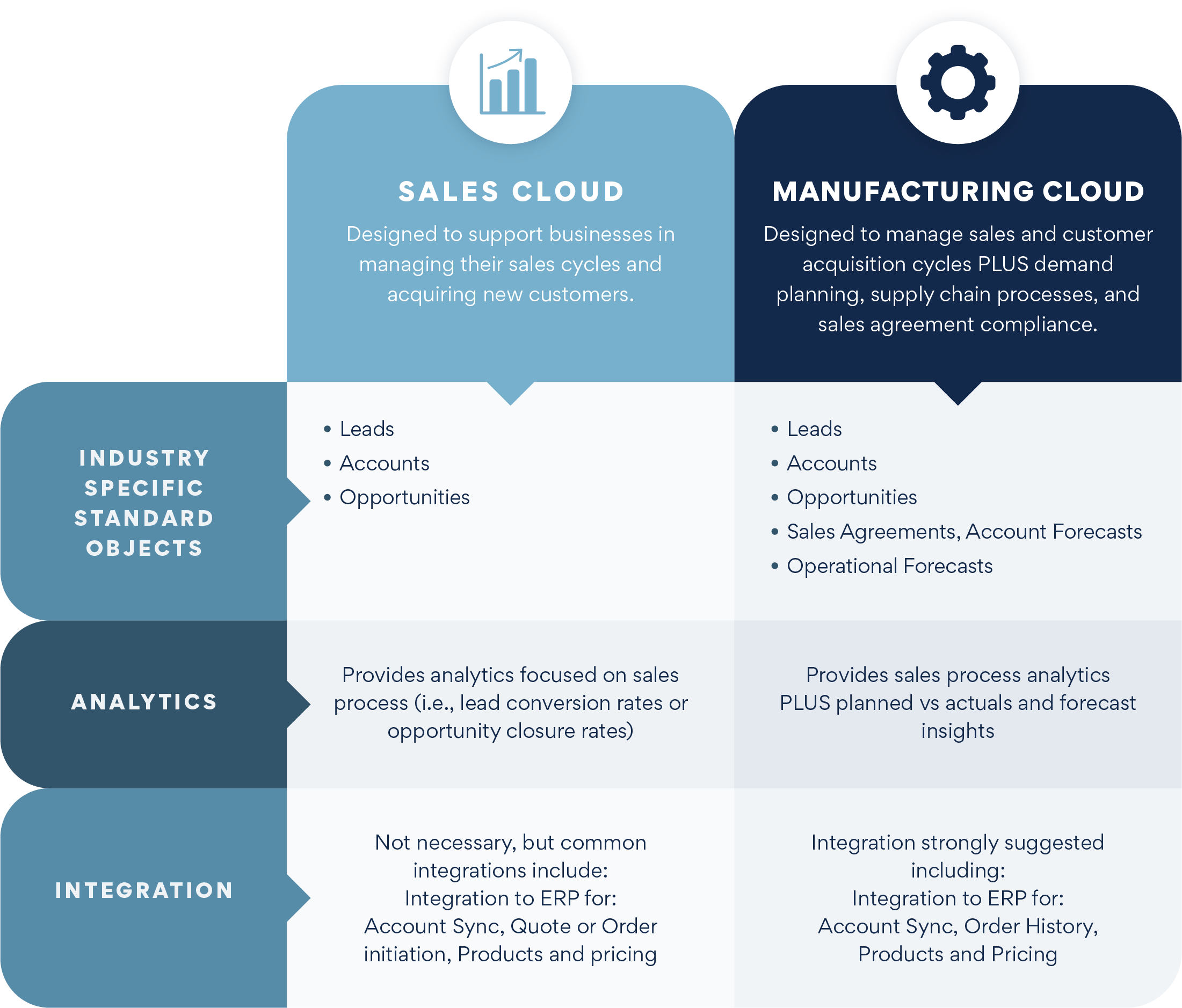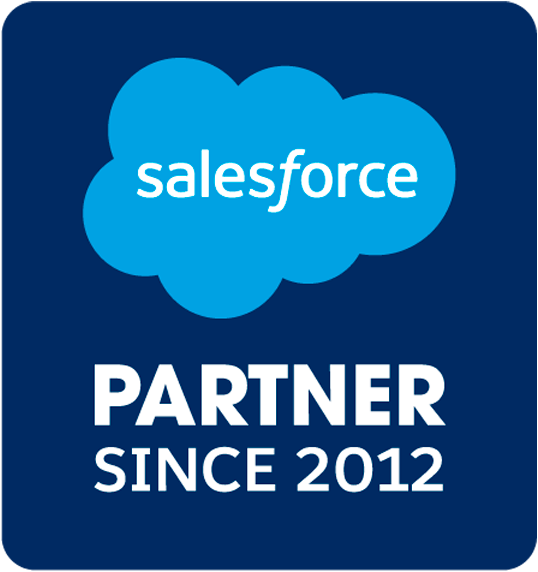Key Differences Between Manufacturing Cloud vs Sales Cloud
Industry-specific standard objects:
Sales Cloud includes standard objects such as Leads, Accounts, and Opportunities, designed to support businesses in managing their sales cycles and acquisition of new customers. Manufacturing Cloud encompasses all these features of Sales Cloud while offering additional manufacturing-specific features. These features include Sales Agreements, Account Forecasts, and Operational Forecasts, which are not available in Sales Cloud. These objects help manufacturers manage their demand planning, optimize supply chain processes, and ensure agreement compliance.Unified view:
Manufacturing Cloud provides a unified view of manufacturing customers through new sales agreements and account-based forecasting solutions that enable manufacturers to accurately forecast, plan, and drive predictable business outcomes. Sales Cloud, on the other hand, provides a unified view of sales leads, accounts, and opportunities to drive pipeline visibility.Analytics and intelligence:
Manufacturing Cloud includes analytics and intelligence features that help manufacturers make data-driven decisions. These include analysis of planned vs. actuals and forecast accuracy. Sales Cloud also includes analytics and intelligence features, but they are focused on sales processes; for example, lead conversion rates or opportunity closure rates.Integration with other Salesforce solutions:
Manufacturing Cloud is a key component of Salesforce Customer 360, which empowers manufacturers to deliver intelligent field services, lifecycle marketing, channel management, B2B Commerce, and more, in a unified view, across their entire business. Sales Cloud is also integrated with other Salesforce solutions, but it is focused on sales processes.
How to Decide Which Solution is Best for You
When deciding which solution is best for your business, consider the following factors:- Industry: If you are in the manufacturing industry or work adjacent to the manufacturing industry (i.e. distribution), Manufacturing Cloud is likely the best solution for you. If you are in a different industry, Sales Cloud may be a better fit.
- Business processes: If you need to manage your demand planning, optimize your supply chain processes, and/or ensure agreement compliance, Manufacturing Cloud may be the best solution for you. If you only need to manage your sales cycles and customer acquisition, Sales Cloud may be a better fit.
- Data and analytics: If you need industry-specific analytics and intelligence, Manufacturing Cloud may be the best solution for you. If you need only sales-specific analytics and intelligence, Sales Cloud may be a better fit.




